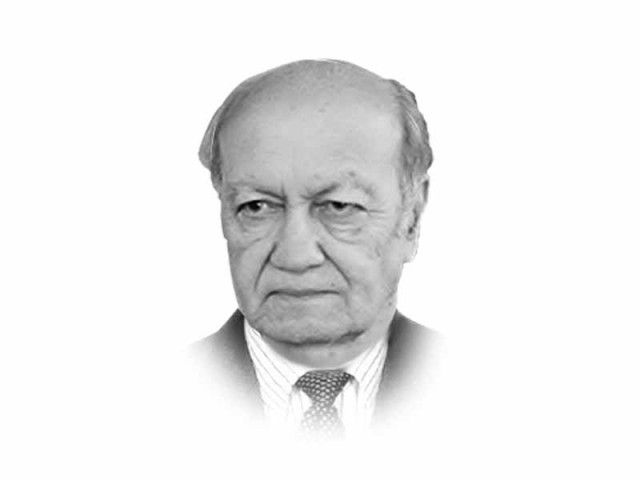
Clearly, the murder of Benazir Bhutto in 2007 was a huge setback for the party and for democracy in general. People had hopes that Benazir would have learnt from her past mistakes and were encouraged that her nemesis and political rival, Nawaz Sharif, had pledged to a pact to abandon the policy of undercutting each other’s legal right to govern and prevent the ambitious generals from leveraging their power to oust a legitimate government. Pakistan was about to come out from the cycle of coups and corrupt governments when Benazir was murdered. Benazir’s loss to the PPP and the country was monumental. She was Pakistan’s most charismatic and outstanding leader in many ways, and much hope was pinned on her despite a long spell of failures in the past. Her leadership and role in politics was a source of strength and inspiration for Pakistani women and the underprivileged. Her courageous stand against the TTP and other militant groups that ultimately cost her life was a rarity that stood in sharp contrast to the weak and ambiguous position taken by most other male politicians. But Benazir’s major weakness was that she was too soft on corruption and did not realise how damaging it was for her, her family and party’s reputation. I had the good fortune of working under her during her first term in office when I was secretary of defence production. I had also known her from before and we enjoyed a certain level of mutual respect. Her assassination and outpouring of grief facilitated the return of the PPP to power but Asif Ali Zardari was, at that time, ill-prepared and poorly qualified to be prime minister. Having spent years in jail on corruption charges that due to legal lacunas were never proved, nonetheless, soiled his reputation and that of his party. The PPP’s foremost failing has been its moral bankruptcy that has lowered its image in the eyes of the public, including its most ardent followers. What the party leadership fails to grasp is that character is a functional requirement of a society and is the moral compass that acts as an anchor.
Moreover, the party cannot live on its past. Bilawal Bhutto Zardari’s speech reinforced the impression that the party is still living more in the past instead of looking into the future. The world has changed and ‘Bhuttoism’ needs to be redefined. What was relevant in the 1970s and the 1980s is obsolete today. The new slogan should have been about education, technology, industrialisation, agricultural revolution, health and efficient management of mega cities, and above all, the rule of law. While the nation does acknowledge the great sacrifices made by Zulfikar Ali Bhutto and Benazir and their contribution in standing up to dictators, they also rightly assess their weaknesses. Excuses put forward by the former PPP government that it was so distracted by NAB cases, judicial activism and pressures from the military that it could not devote sufficient time for governance is not very convincing. These cases were initiated against PPP leaders because there were allegations of corruption against them and the law had to take its course. In fact, President Zardari, by invoking the immunity clause, largely succeeded in preventing corruption cases from being filed against him, but his reputation suffered.
The PPP’s relations with the military have always been uneasy for some of the reasons that I have mentioned earlier. This has been harmful to the party and has not served the military well either. Zardari followed a policy of appeasement towards the establishment by conceding greater space to them in areas of foreign, defence and security policies. These were poor tactics with long-term ill-effects.
The positive side is that the PPP is giving solid and consistent support to Operation Zarb-e-Azb. The PPP, the ANP and the MQM are the only three political parties that are standing behind the armed forces in the existential struggle against militant forces. For this support, all the three parties have been specifically targeted by the TTP and had to pay a huge price in the loss of their leaders and workers. Benazir lost her life standing up to the TTP. Many top leaders and workers of the ANP and the MQM have been victims of terrorists, yet they remain undeterred.
The best way for the PPP to regain the confidence of the people and the armed forces is by bringing about a radical change in the quality of governance in Sindh and acting as an effective opposition party in parliament. This would require a major shake-up and departure from the feudal and archaic leadership to a youthful, energetic and dynamic one. It is not as if there is no talent within the party, but it is essentially a question of change of mindset and trajectory, from a dynastic to a merit-based system. Will Zardari sahib allow this change or will Bilawal be politically assertive enough to break his hold? Frankly, if Bilawal and the future leadership fail to reinvent the PPP and do not bring about a radical change of mindset and values, they will continue on the downslide.
Published in The Express Tribune, October 22nd, 2014.
Like Opinion & Editorial on Facebook, follow @ETOpEd on Twitter to receive all updates on all our daily pieces.
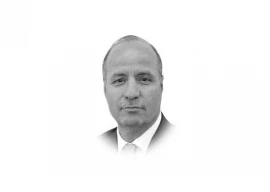







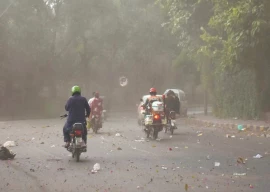
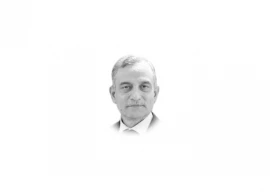

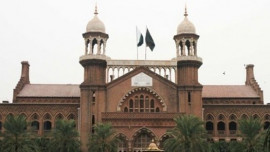

COMMENTS
Comments are moderated and generally will be posted if they are on-topic and not abusive.
For more information, please see our Comments FAQ